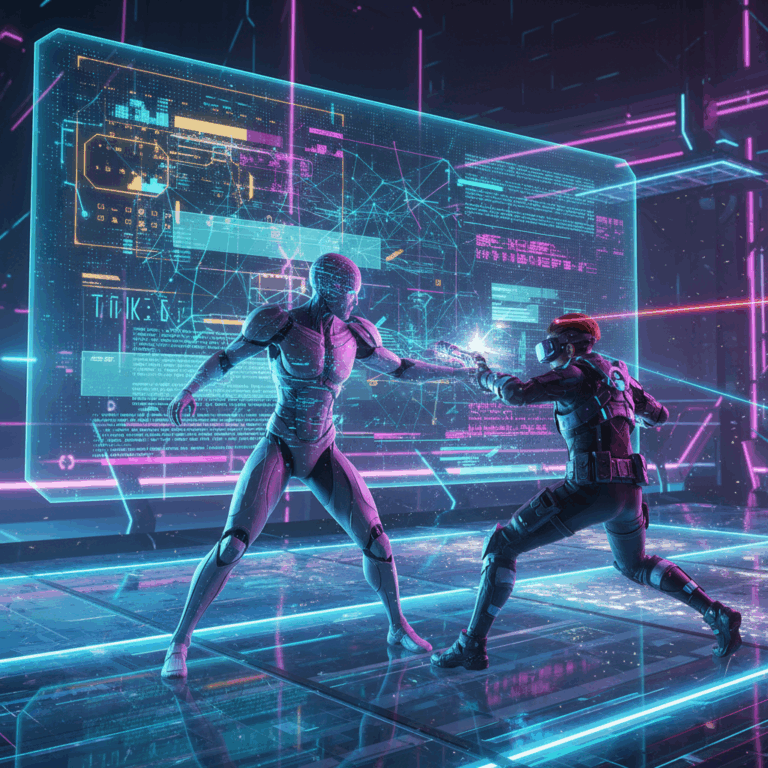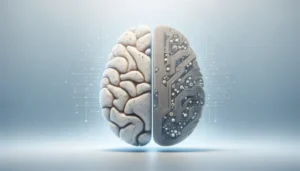Intelligent NPC Behavior
Intelligent NPCs enhance game immersion by adapting their actions dynamically, creating unique experiences based on player interactions. This shifts gameplay from scripted patterns to responsive behavior.
These NPCs use AI to evaluate player choices and modify their strategies in real time. This intelligent design deepens engagement and makes game worlds feel more authentic and alive.
By implementing adaptive behavior, developers ensure that NPCs contribute meaningfully to the story and gameplay, offering unpredictable challenges and interactions that maintain player interest.
Adaptive Responses Based on Player Actions
NPCs equipped with AI analyze player moves to adjust responses instantly. This creates a personalized encounter where each decision affects NPC behavior and narrative progression.
For instance, if a player acts aggressively, NPCs might become hostile or defensive. Conversely, friendly actions can lead to trust and cooperation, enriching the gameplay dynamics.
Such adaptability ensures that no two playthroughs feel identical, promoting replayability and a deeper emotional connection between player and game world.
Memory and Learning in NPCs
Modern NPCs can remember previous interactions, enabling them to learn and evolve over time. This memory influences future encounters, making relationships more complex and believable.
By recalling player behavior, NPCs tailor their attitudes and decisions, from trust building to retaliation. This continuous learning creates a living, reactive environment within the game.
Overall, memory and learning systems empower NPCs to behave more naturally, reacting appropriately to player history and increasing the depth of gaming experiences.
Examples of Intelligent NPCs in Games
Intelligent NPCs in modern games showcase advanced AI by exhibiting unique behaviors that enhance immersion. These characters respond realistically to players, enriching the gameplay experience.
By integrating dynamic routines and memory systems, games create worlds where NPCs feel alive and reactive. This shift moves gaming beyond scripted interactions, making each session unpredictable and engaging.
Examining specific game examples highlights how AI is transforming NPC behavior to deliver more meaningful and personalized player encounters.
Dynamic Routines and Reactions in Skyrim
In Skyrim, NPCs follow daily schedules like working, eating, and sleeping, which creates a living world feeling. Their actions change based on player interactions, adding depth to the game.
For example, if a player helps an NPC, that character may react positively later. Alternatively, hostile actions can cause NPCs to avoid or confront the player, influencing quests and world dynamics.
These adaptive reactions help players feel their choices matter, enhancing immersion and the realism of the game’s vast environment.
Nemesis System in Middle-earth: Shadow of Mordor
The Nemesis System personalizes enemy encounters by allowing orcs to remember past battles with the player. Enemies evolve, bearing scars and altered personalities based on interaction history.
Unique dialogues and rivalries emerge, with enemies seeking revenge or forging grudges. This system creates unpredictable conflicts and brings an emotional layer to combat dynamics.
By making enemies memorable and reactive, the Nemesis System deepens player engagement and encourages strategic thinking during gameplay.
Attitude Changes in Red Dead Redemption 2
Red Dead Redemption 2’s NPCs adjust their attitudes toward the player based on past behavior, ranging from friendly greetings to outright hostility. This fluidity makes social interactions realistic.
Players influence NPC trust and fear by their actions, shaping relationships and story progression. This AI responsiveness adds emotional weight to the open world narrative.
The game’s system rewards or punishes player choices subtly, making every interaction impactful and reinforcing the sense of a living, breathing world.
Real-Time Adaptive Gameplay Systems
Real-time adaptive gameplay systems dynamically alter game environments and challenges to match player skills and decisions. This technology ensures each session is exciting and well-balanced.
By constantly monitoring player actions, adaptive systems provide responsive gameplay that keeps players engaged. These adjustments create a tailored experience enhancing immersion and fun.
Such systems blend AI with game mechanics to produce emergent narratives and evolving scenarios, making games feel fresh and challenging every time they are played.
AI Director and Dynamic Difficulty Adjustment
The AI Director is a system that observes player performance and alters game difficulty in real time. It adjusts enemy spawns, resource allocation, and pacing to maintain optimal challenge.
This dynamic difficulty adjustment ensures that players neither feel overwhelmed nor bored, striking a balance that keeps gameplay engaging and accessible to different skill levels.
For example, in cooperative games like Left 4 Dead, the AI Director intensifies zombie hordes when players excel or eases pressure if they struggle, creating a smooth and thrilling experience.
By leveraging AI Director systems, developers offer personalized playthroughs that adapt to player behavior, making every encounter meaningful and unpredictable.
Technologies Enabling AI in Games
The advancement of AI in video games relies heavily on powerful technologies like machine learning and natural language processing. These tools enable dynamic and intelligent game environments.
Game developers leverage these technologies to create NPCs and systems that adapt, learn, and interact realistically, pushing the boundaries of immersive gameplay experiences.
By integrating these AI tools, games evolve beyond scripted mechanics, offering players more engaging, personalized, and responsive interactions within virtual worlds.
Machine Learning and Deep Learning Applications
Machine learning allows games to analyze vast amounts of data and improve NPC behavior over time. This results in smarter enemies and allies that adapt to players’ strategies.
Deep learning models simulate complex decision-making, enabling NPCs to handle diverse situations with more human-like reasoning and tactics, enhancing realism.
These AI systems can also optimize gameplay elements like difficulty, balancing challenges dynamically to maintain player engagement across different skill levels.
Development teams use neural networks and reinforcement learning to train NPCs, making interactions unpredictable and more lifelike, which heightens excitement and immersion.
Natural Language Processing for Realistic Interaction
Natural language processing (NLP) enables NPCs to understand and generate human language, facilitating more natural conversations and player communication.
By interpreting player text or voice input, NPCs can respond contextually, improving immersion and creating believable dialogue exchanges in the game world.
NLP enhances quest interactions and storytelling, allowing players to influence narratives through conversation choices that feel genuine and impactful.







